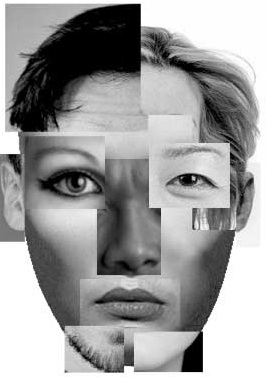 In my views, passing is when the external appearance and to a certain extent behavior of a person unintentionally or intentionally passes for another race and/or identity.
In my views, passing is when the external appearance and to a certain extent behavior of a person unintentionally or intentionally passes for another race and/or identity. This idea of passing is well interwoven within the text of Symptomatic. Perhaps I wasn't at all focused on the protagonists race; I was more inclined to her story than her history. I hadn't a clue that she was biracial, I assumed she was white who liked black men from time to time, however it wasn't until she interviewed Ivers Greene where I got that "oh" moment. That moment where I finally realized she was more than just white.
""Can I ask you a question? "Yeah." He whispered it. "Are you a quadroon?" " (104)
Her reaction to this question made it clear that she had more to her story than I assumed. She surprisingly looked away and drank her wine as if she just swallowed a bulky pill. It made it all clear as to why she didn't like Andrew's friends therefore leaving Andrew. It made sense when Andrew told her he couldn't remember what she looked like. He says:
"In all the months I've known you, I've never been able to remember what you look like. Isn't that bizarre? I used to think it was a good thing, the suspense I felt going to meet you in public--this completely irrationally fear I had that I might not recognize you. But it's something else isn't it?" (35)
Unlike the novel, Passing by Nella Larsen, the protagonist's persona is not in full display as Irene's was, at least in my opinion. When Irene had encountered Clare in Chicago, the conversation between the two helped me to discover Irene was indeed a light African American woman. However, the protagonist's, or "Rocky" as Greta calls her, race is explained by what she sees because though it in first narrative, she neglects to mention anything about her being black or biracial. (Or I just plainly overlooked it.) Irene and "Rocky" are similar because they do not blatantly profess they're racial identity yet when put in the situation where their race is belittled by others or made fun of they silently suffer in anger. They only reveal themselves when asked.
Greta was passing in different aspects of the word. Not only did she pass as white but she passed as a different person entirely by changing her identity. She reminds me of Clare, an unsatisfied, dysfunctional woman who was unable to cope with her biracial identity therefore behaving psychotically; hurting not only themselves but those who associated with them. They both were going through life finding acceptance from their multiracial world.